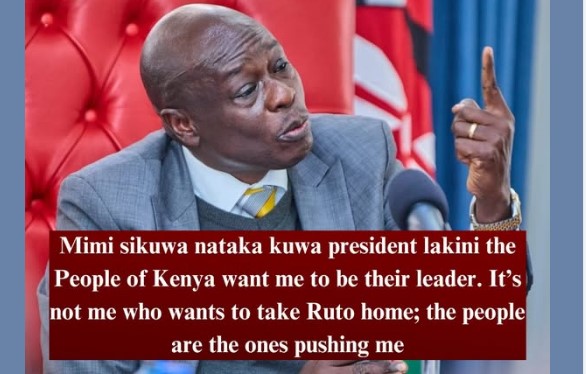Kenya’s political scene has once again been thrown into heated debate following claims that President William Ruto is planning to sell the Kenya Pipeline Company (KPC) to his Nigerian son-in-law for KSh 100 billion, despite the company reportedly being valued at around KSh 600 billion. The allegation, which Deputy President Rigathi Gachagua is said to have raised, has shocked many Kenyans and reignited concerns about the management of public assets and the transparency of government dealings.
Whether true or not, the claim touches on a deeper issue — the fragile relationship between government accountability, national resources, and public trust. KPC is one of Kenya’s most strategic state corporations, responsible for transporting petroleum products across the country. It plays a critical role in stabilizing fuel supply, supporting industrial growth, and generating state revenue. Any talk of its privatization or sale naturally triggers strong reactions, especially when allegations of undervaluation and nepotism emerge.
At the heart of the debate lies the question of transparency in governance. If such a sale were to take place without clear communication, independent valuation, or parliamentary oversight, it would amount to a breach of public confidence. State assets belong to the people of Kenya, and any transaction involving them should meet the highest standards of honesty, legality, and openness. Past experiences with privatization have left bitter memories, as some public enterprises were sold cheaply to politically connected individuals, leaving taxpayers with losses.
On the other hand, supporters of privatization argue that bringing in private investors can improve efficiency, reduce government expenditure, and unlock new sources of capital. In this view, selling shares of KPC could modernize its operations and create opportunities for growth. However, the process must be guided by due diligence and public participation to prevent exploitation.
The allegation involving a family connection between the President and a potential buyer raises ethical and moral questions. Even if the deal were legitimate, any perception of favoritism or insider benefit would still damage public trust. The Constitution of Kenya upholds integrity and transparency in the management of public affairs, and leaders are expected to avoid conflicts of interest.
Beyond the controversy, the incident highlights the growing public awareness and vigilance among Kenyans. Citizens are increasingly demanding accountability from leaders, proof of value for money, and assurance that the country’s resources are managed fairly. The courts, civil society, and media also play vital roles in investigating and verifying such claims before they spread unchecked.
The alleged sale of Kenya Pipeline Company is not just about numbers or ownership — it is a test of integrity, governance, and public faith in leadership. Whether the allegations are factual or politically motivated, the debate underscores the urgent need for transparency, accountability, and adherence to the rule of law. The future of Kenya’s strategic assets must be safeguarded by truth and fairness, not rumor or personal interest.



